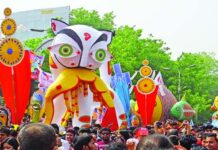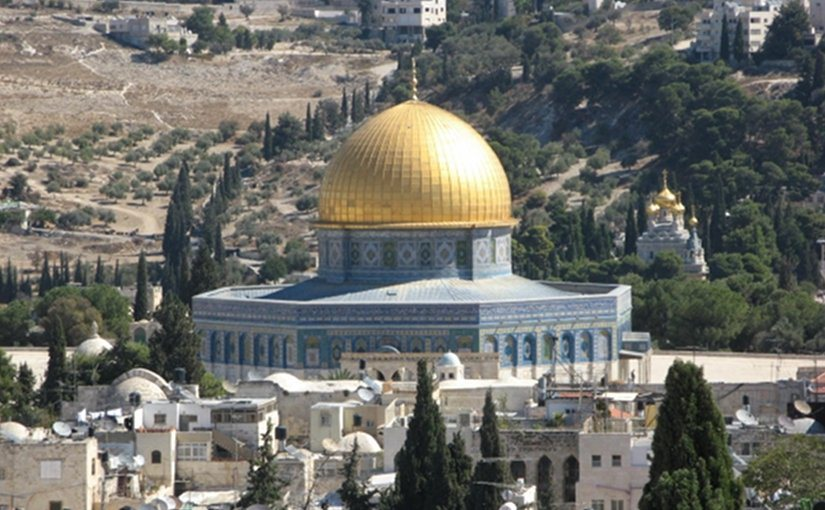Anu Muhammad
The Shahbag protest, demanding the death sentence for the war criminals of 1971’s independence war, began on February 5, 2013. The protest welcomed diverse groups, despite their distinct identities and, through its inclusive nature, demonstrated that the sun is finally rising on Bangladesh.
It appears that things are slowly beginning to change in Bangladesh, in a positive direction. The Shahbag protest which had started after the ‘controversial’ verdict by the International Crimes Tribunal-2, Bangladesh, against war criminal Abdul Quader Mollah, is undeniably a significant step towards positive change in Bangladesh.
We, people from a variety of different spheres society, predominantly the youth demographic, have been literally glued to each development in the Shahbag protest which reached its tenth consecutive day, today. We are going to Shahbag in the mornings. We are staying at Shahbag through the nights. We are tweeting and updating our Facebook status, keeping our friends and the world updated on the progress of Shahbag. The whole country is talking about Shahbag and Shahbag only. Shahbag has become our home now.
Why is this?

All of us were shocked and disheartened after the second verdict of the second tribunal was given and after a war criminal showed the ‘V’ sign after the tribunal handed down its verdict. We refused to remain silent. An international tribunal confirmed that this war criminal was complicit in the killing of 344 people, the raping of an 11 year old girl and the brutal assault of a 2 year old boy, as well as two other serious offences. How then can we accept the fact that this man defiantly celebrated his sentence by showing the victory sign? According to the judgement, his direct involvement was proved beyond any reasonable doubt. How dare he celebrate this!

Such questions plagued the minds of Bangladeshi bloggers and, thus, they called for a protest. We, the youth, joined their call. We, the Bangladeshi youth, felt it was high time that we stand up. It was the right time to protest against such injustice and to stand up against the perpetrators of such heinous crimes who still fail to acknowledge the gravity of their horrible misdeeds. YES, WE JOINED. We gathered at Shahbag to voice our anger at the verdict. But, this call for justice did not end there. What is it then that has enabled this call for justice to endure for ten consecutive days at Shahbag?

Is it not the slogans which are making us more enthusiastic, more dedicated, more adamant? Are we not shouting loud because we want to be heard? We want the authorities to hear us and listen to our demands, demands which will ensure justice for all victims, particularly for those who suffered during 1971’s liberation war. Is it not the slogans which make us more connected with our hearts, with our passion and desire for justice?

Yes, it is. Nothing else instills in us that excitement and dedication more than a PERFECT FIERY slogan. Slogans can energize us so intensely. After all, over the years, all over the world, it is slogans that have spearheaded mass movements!
The slogans that we are chanting at the Shahbag protest are slogans which we have learned from our very early childhood. I am sure that all of us heard ‘Joy Bangla’ (Victory for Bangladesh), ‘Tumi ke ami ke, Bangali Bangali’ (who are you, who am I, Bengali Bengali) whenever we watched films on the liberation war.
I was born and brought up in the Rangamati Hill Districts. I remember hearing slogans such as ‘Rokter bonnay veshe jabe onnay’ (through the bloodshed, justice will be established) in my childhood every time any incident oppressing the indigenous peoples took place in my hometown.
And now, all of these slogans are being chanted at the Shahbag protest, along with many new and equally exciting ones. The slogans of the Shahbag protest are coming both spontaneously and intentionally. ‘Ka te Quader Mollah, tui razakar tui razakar’ (Ka for Quader Molla, you are the collaborator) is a spontaneous slogan, whilst a slightly altered slogan such as ‘Tumi ke ami ke, Garo, Chakma, Bangali’ (who are you, who am I, Garo, Chakma, Bangali) is undeniably an intentional slogan, a slogan with a deeper message.
As a member of the indigenous community, I am grateful to the Shahbag protest on personal level. Perhaps not the case from the very beginning, but the crowd did welcome us (the indigenous peoples of Bangladesh) and our distinct identities when we pointed out that we are not Bengali. This movement is unique in that it has not attempted to change our identity in the name of ‘integration’ or ‘nationalism’, as was generally the case before in this very independent and democratic country. Our struggle to be acknowledged and accepted for our distinctiveness was always the “minority’s struggle” and was not seen as part of the national movement. That was until the Shahbag protest.
Source: Storify









